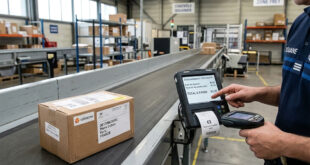Oscar Siches’ considered take on the tragic sinking of S/Y Bayesian…
On 14 April 1912, RMS (Royal Mail Ship) Titanic, the pride of British maritime industry and at the time the biggest passenger ship in the world, hit an iceberg and sunk in the early hours of 15 April. The analysis of the circumstances of the accident and the high number of victims gave way to the creation of SOLAS, the Safety of Life at Sea treaty in 1915.
The whole maritime world is still benefiting from it. In ship design and safety standards there was a before and after the sinking of Titinic. The sinking of Bayesian, with many answers unknown, has an unequivocal cause: an exceptionally powered storm including waterspouts.
The Western 21st-century human being wants immediate answers for everything. Everybody believing to have experience and knowledge to comment on such an accident gets busy, especially on social media, explaining their view of what happened and what the captain should have done, elaborating damaging theories that only ignorant people would sustain.
We are talking work of nature here, a meteorological phenomenon of unknown power not described with such effect in any textbook, neither nautical nor maritime. Such power in nature is something new to all of us, probably part of the climatic change we still do not pay the respect it deserves. And only the captain and survivors know first hand, or at least they know what they feel, what and how it happened. The rest are conjectures and very educated guesses.
I mentioned Titanic and the SOLAS as a result for the prevention of further maritime disasters. Should designers and yacht engineering firms sit down and find a way to incorporate, in sailing boat design, features that could prevent a yacht from being so vulnerable to extreme weather, or should captains adopt a new, more careful attitude towards certain extreme bad weather? Captain Catfield and crew were caught by this previously unknown phenomenon at the weakest time of a human being: 3 a.m. to 4 a.m. This is a proven fact – that’s why military attacks are made at that time.
The guests were sound asleep. The yacht capsizes and, as it is known now, many of the guests were trapped in their cabins. The Italian divers, with limited diving time due to the depth the yacht is at, say that it was very difficult to get to the guests’ cabins because of the amount of furniture loose and debris in the way, occasioned by the capsizing.
Earlier in this article I blamed people for judging without knowledge. In 1979 I dived in a 25-metre yacht sunk close to Spelonk Point, Bonaire. We did have the 10-minute margin before having to go back to the surface. Luckily there were no casualties, but I was locked in a cabin because furniture got loose and blocked the cabin door. It took me more than 10 minutes to be able to open the door and escape. I do know what I am talking about.
Justice, insurance and maritime experts will investigate this accident and arrive at serious, official conclusions, but, in this case, when nature decided to show its might in a way unknown yet to us yachtsmen, those conclusions will not be more than an educated guess. We do not dominate the sea: she just tolerates us.
Click here to become part of The Superyacht Group community, and join us in our mission to make this industry accessible to all, and prosperous for the long-term. We are offering access to the superyacht industry’s most comprehensive and longstanding archive of business-critical information, as well as a comprehensive, real-time superyacht fleet database, for just £10 per month, because we are One Industry with One Mission. Sign up here.
Source link


